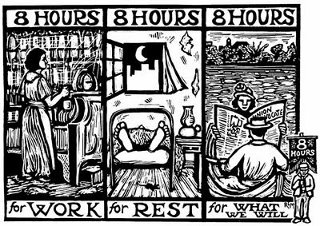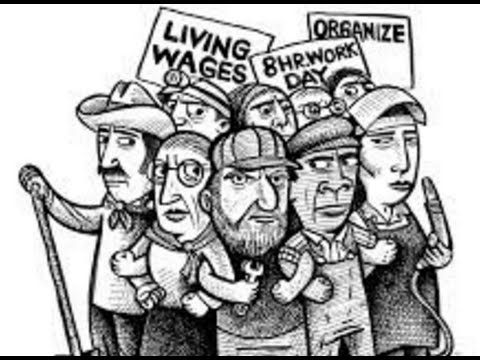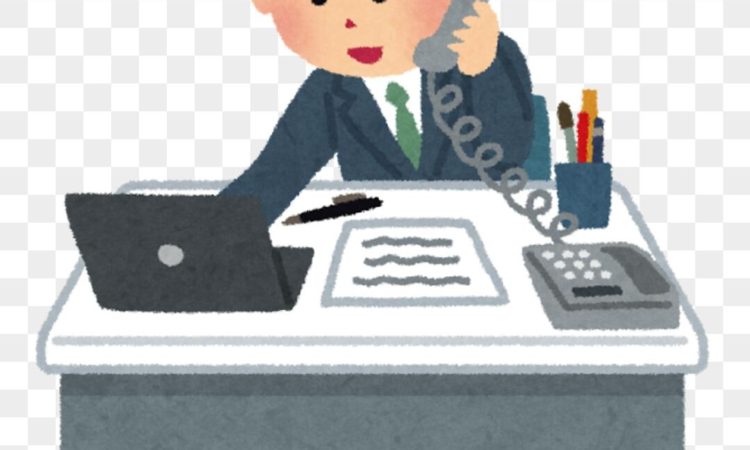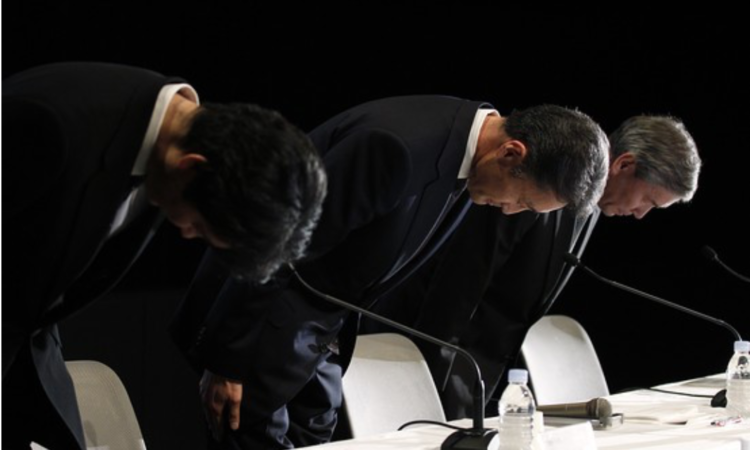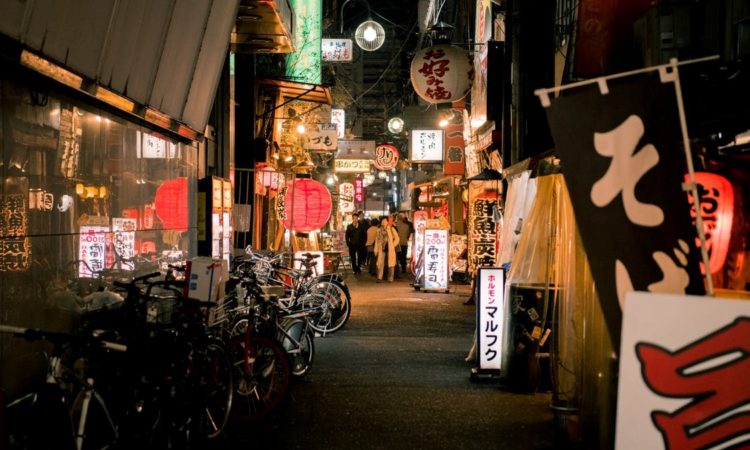Let’s talk about labor laws and history in Japan
Labor Law History
The labor laws in Japan are not radically different from those of other countries. For example, there is a minimum wage, definitions concerning working hours and overtime work, provisions against discrimination, etc. There is a labor board that enforces the labor laws, and that can be consulted with (more below) in cases where workers are getting a raw deal.
Different Statuses
A lot depends on you status as a worker, regardless of the labor laws (from my personal experience of working in Japan). At the top of the food chain is seishain. A seishain is a difficult concept to explain to western foreigners. I always explain it thusly: “You remember Goodfellas, when Ray Liota is explaining the concept of a ‘made guy’? Once you’re a made man in one of the crime families, you are an ‘official member,’ and no one can take that from you.” In the same way, a seishain of a company is a made man, and short of doing something criminal (and even then), you cannot be fired. In short, until you decide to quit, or until the company is no longer solvent, you have life employment. That’s traditionally how it was in Japan. You joined a company at 22 and worked there until teinen (forced retirement, which is still anachronistically set at 65 years in many companies). Also, if you are a seishain, you are enrolled in the national health insurance via your employer, you can get bonuses, your taxes are taken care of, and you get taishokukin (retirement money [a lot!])….being a seishain is sweet deal. Under seishain, you have keiyakushain, baito, haken shain, and itaku shain.
“Keiyaku” means contract in Japanese, and a “keiyaku shain” is a contract worker. You are not a seishain (your employment depends on your contract), and whether or not you receive bonuses (you probably won’t) depends on the content of your contract. Most contracts are for a year, meaning every year you don’t know what will happen the next. Also, you are normally not enrolled in the national health system, meaning you have to do it yourself (an entire article can [and should] be written about this). What is different between this and a “baito,” which I’m about to explain, is that as a keiyaku shain, you work full time.
A “baito,” or “part time worker,” means you do not work full time. In my company, most “baito” workers work two or three days a week, usually several hours each time. There is no job security, there are no bonuses, and you are not enrolled in the national health care system. Similarly to keiyaku shain, your duties and hours are defined by a contract, with the difference being a keiyaku shain is usually full time whereas a baito worker is not.
An itaku shain is essentially a freelancer. Here, you are not required to work a certain amount of hours and you are not paid depending on the amount of time in the office per se, but rather you are paid regarding the amount of work you do, and in many cases, you don’t even have to go to the office. Many itaku shain (at least in my company) are old guys who have exceeded teinen. That is, on your 65th birthday, you lose your seishain status and are expected to go quietly into the night. Realistically, however, companies like to retain such experienced old guys, so many of these guys, at the ripe age of 65 years and one day, return to the company as an itaku shain. The vice president of my company did this, actually. He “retired,” and we had a big sendoff for him, but he was back at the office the next day, now working under a different status. Also, when you’re not a seishain, you often are not required to attend chorei (morning meetings/roll calls), zentai kaigi (company-wide meetings), or do any of the other things seishain have to.
Traditionally, as mentioned above, you joined one company and worked there until teinen, and changing companies or starting at the “old age” of 25 were heavily frowned upon. In recent years, though, tenkin (changing careers) is becoming more common, and increasingly more people actually prefer being keiyaku shain or baito, because with these jobs, though there is no real security, you are also not tied down to one company, and many young people actually prefer this way of working.
Unions
There are unions in Japan, and they have existed since the 19th century. For many years, said unions, lacking legal protection, were not very active. But after World War II, at the gunpoint of the Americans, the laws concerning unions were changed, and they were afforded more legal protection. According to my research, there are currently three main labor union federations in Japan, which are Rengo (Japanese Trade Union Confederation), Zenroren (National Confederation of Trade Unions), and Zenrokyo (National Trade Union Council).
Work style reform law
This was passed in 2018, and it essentially tweaked a bunch of existing labor laws. It endeavored to set a limit on overtime work, eliminate disparities that exist between the different worker statuses mentioned above, set rules concerning working from early hours or late into the night, nado nado (etc. etc.). The reality, as far as I can tell from my company, are as follows:
Indeed, over the past year the HR people in my company have become quite strict about working too much, late into the night (as a general rule, we are not supposed to work past 10 P.M. without special permission), and we are not allowed to work on Sunday (for this particular rule, my company has made it such that normal seishain and baito and the like cannot physically enter the company from midnight Sunday until midnight Monday). Having said all of this, the reality is that people (certainly including me) continue to work well over the capped overtime limits, continue to work on Sundays, and continue to work well into the middle of the night and the early morning.
In Japanese, there are concepts called “tatemae” and “honne.” “Tatemae” can be considered “ostensible,” “official stance,” or what you tell everyone your reason for doing something is, while “honne” can be considered “true intention” (that is, the real reason you are doing something). In Japan, often, there are “ostensible” efforts to address a problem, but these efforts are simply superficial; the reality does not change. So yes, on the surface, these labor issues have been addressed, but the reality has not really changed, as far as I can tell.
I often sneak into my office in the middle of the night, I often work well past 10 at night, I often see others doing this, and I often receive e-mails from colleagues on Sundays and late at night when they aren’t supposed to be working. In many companies including mine, there has been a huge expansion of zaitaku kinmu, or “working from home,” and with this arrangement, it is impossible for companies to “enforce” these labor laws; if anything, such an arrangement is great for companies, because they have plausible deniability.
Having said all of this, though, even in my 13 years of living and working in Japan, I have noticed some real changes in the very conservative working culture of Japan. For one, there is an increasing number of companies allowing zaitaku kinmu. For a long time, many companies have promoted and allowed “cool biz,” in which the dress code is relaxed during the summertime (today in Tokyo, the high was 35 degrees Celsius/95 degrees Fahrenheit – can you imagine wearing a suit and tie in this weather?). There has also been an increasing number of companies allowing for maternal and paternal leave (many of these policies are in line with changing labor laws). The reality, however, is that many Japanese people continue to work brutal hours and suffer the consequences thereof (more about this below and the causes thereof).
What are my rights?
For the most part, the labor laws in Japan are as they are in most of the developed world. Discrimination is illegal, you must be presented with a working contract that stipulates your work duties, work hours, salary etc., your salary must be paid, you are entitled to prior notification if you are dismissed, and you must be formally warned before being dismissed (I’m pretty sure), etc.
If you have a labor dispute with your employer in Japan, my best advice is go immediately to the roudou kijun kantokusho (the labor standards inspection office). There are labor standard offices all over the place, similar to police stations (i.e. each having a certain jurisdiction).
Let me tell you a story. When I taught English full time, I worked at a small eikaiwa (English conversation) school. One of my teachers wanted to take off four or five days for some reason, but the owner of the school told him he could not (I’m going to talk a bit more about taking time off in Japan below, but let me say here in the defense of the owner of this school, taking off a whole work week [especially in the service industry, which is what English conversation is] is a big deal). They had butted heads several times in the past over various issues, but on this hill, my fellow teacher decided to fight; he went to the local local labor standards inspection and consulted with lawyers there. He had done his research; he knew the labor laws and KNEW that he was entitled to a certain number of paid days off. The labor lawyers visited our school and had a heart-to-heart with the owner. They told her in no uncertain terms that the teacher was, legally speaking, correct, and that if this were to come to court, she (the owner) would certainly lose. After hearing this, she folded, gave the dude his time off, and then paid him to quit.
I should say this here: it is very hard to “fire” people in Japan. The labor laws in Japan, at least from my perspective, are very protective of workers. As mentioned before, short of committing a crime or doing something unbelievably irresponsible, companies cannot summarily dismiss employees. For example, there was a story floating around on the internet a few years ago where an employee was seen drinking a NON-ALCOHOLIC beer in the company cafeteria and he was concerned about being fired. Many talking-head lawyers weighed in, with one commenting as follows: もしこれが通常のビールであったとしても、昼食中の1回の飲酒のみを理由とする解雇も、懲戒処分としては行き過ぎです。
I’ll translate: “Even if this had been a normal beer [a beer containing alcohol], firing an employee only for the reason of having one drink at lunch would be excessive.” So yeah, even drinking on the job would probably not be enough to fire someone. As such, many employers employ sinister means to get rid of people.
There is an expression called kanshoku ni mawasareru. In this tactic, the person in question is placed in an undesirable position to make him quit. Or, failing this, the employer will offer generous compensation to the employee and ask him to quit. The teacher above I was talking about was offered a very generous amount of money, decided to take it, and then quit. In my current company, my senpai (my senior, the guy who trained me and looked after me in the company) was similarly forced out of my current company. He and the president had been on bad terms for years, and the president offered him A LOT of money to quit, which he did (I don’t know how much, but I do know it was enough to pay of his home loan).
Causes of overworking
Overworking in Japan is very common. In fact, one of the things Japan is best known for is overworking. Capsule hotels and internet cafes abound for workers who have missed the last train (these also exist for drunk people, and the two are not mutually exclusive). Karoshi (過労死), literally “death from overwork” is a real thing, and far more common is utsubyou (depression; or in this case, work-related depression).
Where does this tendency come from? I’m not sure, but I will allow myself some speculation here. One common cultural characteristic of Japan is the tendency (or overt pressure) not to stand out, not to rock the boat, and to maintain harmony. There is the famous Japanese proverb “the nail that sticks out will be hammered down,” and I think a lot of this overwork comes from this tendency.
I’ll give you one example. When I worked as an English teacher in a public school when I first came to Japan (this was thirteen years ago and in the countryside, so this was a different world), the unspoken rule in the teachers’ room was that, until the vice principal (Kyoto Sensei) left for the day, YOU COULD NOT LEAVE. This vice principal, as a matter of personal pride perhaps, refused to leave until it was dark outside, so in the summer time, teachers had to be present by 7:50 A.M for the morning staff meeting and they weren’t leaving at least until 7:30 at night. Of course, YOU COULD leave after finishing your work, but the pressure not to do so was palpable.
The same applies to taking vacation time. YOU DO HAVE paid leave, but using more than one week, especially at times not coinciding with everyone else, is heavily frowned upon, and the pressure not to do so is, once again, palpable. In 2018, I took off zero days from my company. I don’t think I took off any in 2017 either. This is not special or remarkable; many of the people in my office are the same.
But nowadays, things are changing. For example, there is a complete “flex-time system” in my company, meaning you can come to the office when you want and leave when you want (within reason), provided you work a certain number of hours per month. My company also allows for zaitaku kinmu (work from home), which I have been doing for the last two years. While this seems like progress, the reality is that flex-time and zaitaku kinmu actually result in more working hours from employees. The president of my company, at some company drinking event, told me such: “Actually, flex-time and zaitaku kinmu are great for the company, because the employee tells himself he can make up those hours later, and in the end, he ends up working more.”
Also, similar to the discussion above concerning tatemae and honne, style is more important than substance in many cases in Japan, and appearance is more important than actuality. Even if you apologize, if you do not “appear” sincere, said apology would not be accepted. In the same way, it’s more important to “appear busy” than actually handle and accomplish real work. This is all speculation on my part, but I came to Japan when I was 22, and I have spent my entire working life here. This is the impression I have gotten (interestingly, many Japanese coworkers will ask me about working in America, and I always have to say, “actually, I’ve never worked in America aside from part-time jobs (and that was a long time ago), so I really don’t know).
Conclusion:
Things are changing in Japan in respect to work, but overtime work, weekend work, and working late into the night remain common.


